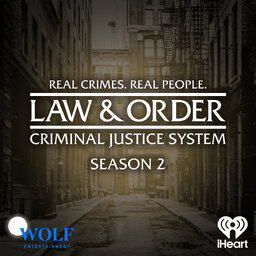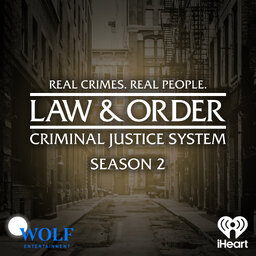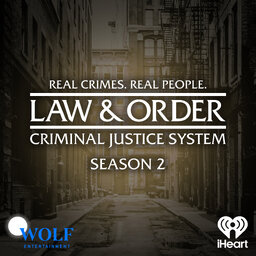S1 E8: Crazy Like a Fox
Law & Order: Criminal Justice System - Season 1 & Season 2
Season Two Out Now. Law & Order: Criminal Justice System tells the real stories behind the landmark cases that have shaped how the most dangerous and …26 clip(s)
Loading playlist
As the government closes in on Vincent Gigante, his carefully constructed facade of insanity begins to unravel, revealing the full scope of his influence and deception within the Mafia.
-----
Mike Campi's new book "Mafia Takedown: The Incredible True Story of the FBI Agent Who Devastated the New York Mob" is available on November 12th, 2024 via Amazon, Barnes & Noble, or wherever you get your books.
Law & Order: Criminal Justice System - Season 1 & Season 2
Season Two Out Now. Law & Order: Criminal Justice System tells the real stories behind the landmark …Social links
Follow podcast
Recent clips

S2 BONUS: Missing Pieces
33:58

S2 BONUS: The Psychology of Terrorism with Arie Kruglanski
39:04

S2 E10: Lone Wolf
54:00
 Law & Order: Criminal Justice System - Season 1 & Season 2
Law & Order: Criminal Justice System - Season 1 & Season 2